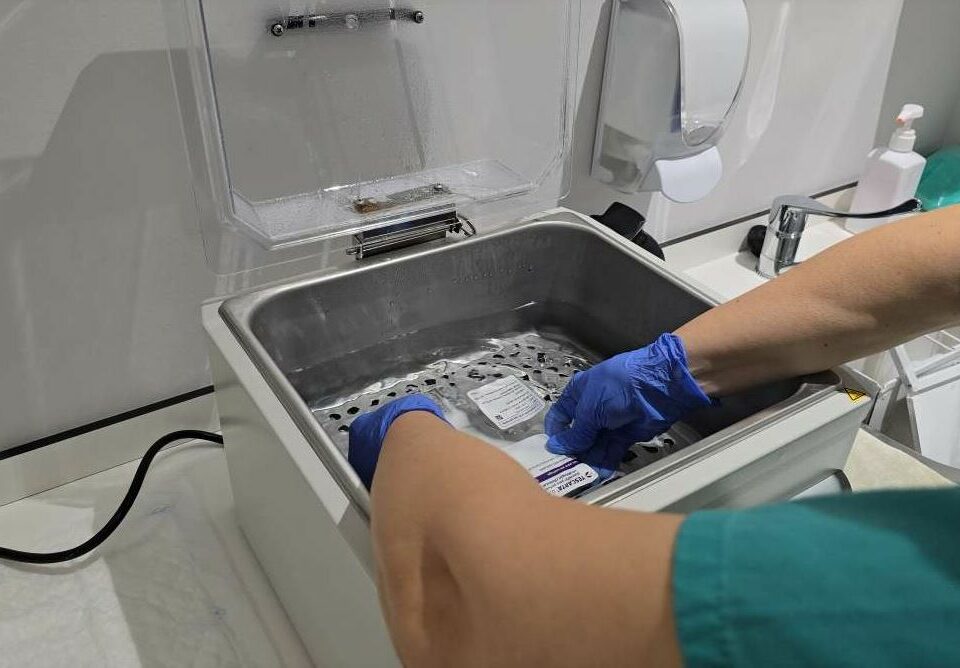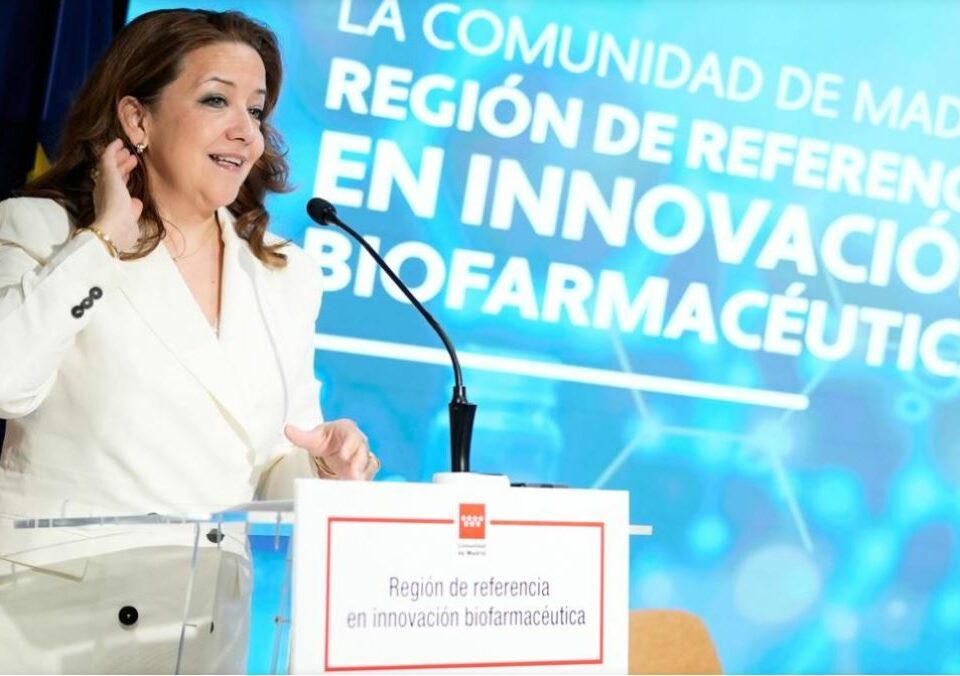Urgent measures are needed to encourage innovation and production and enable Europe to make up lost ground.


elglobal.es
In a political context with elections called for the European Parliament at the beginning of June 2024 and with Spain holding the presidency of the European Council from July until December of this year, the new European pharmaceutical legislation has not yet taken its final shape. Icíar Sanz de Madrid, Director of International Affairs at Farmaindustria, explains to El Global the priorities for this new legislation.
Question. Given the current context, what would you say should be the priorities for further progress in the revision of European pharmaceutical legislation?
Response. The revision of European pharmaceutical legislation is an opportunity to reposition Europe as a power in the sector, but to do so it must boost innovation and production. Therefore, the current proposal, which threatens the competitiveness of the sector by placing barriers to innovation, needs to be balanced so that it can respond to the needs of all stakeholders, patients, national systems and industry.
The priorities must be, we believe, to promote a system of incentives for innovation that attracts talent and research to Europe, to promote a system of early access to drugs, to strengthen the market for orphan drugs or to establish appropriate requirements to ensure supply, among other main objectives.
“The priorities must be, we believe, to promote a system of incentives for innovation that attracts talent and research to Europe, to promote a system of early access to drugs, to strengthen the market for orphan drugs or to establish appropriate requirements to ensure supply”.
Q. Spain currently holds the European Presidency of the Council of the European Union. Although it is a short term position, how can you contribute to the advancement of this legislation?
R. The Spanish Presidency of the Council of the European Union is undoubtedly an opportunity to put health, medicines and the innovative pharmaceutical industry at the centre of EU policy.
Q. In June 2024 there will be a new call for European elections. Does Farmaindustria think it is feasible that the new pharmaceutical legislation will take its final form by this date?
R. No, the European legislative process is very long and will undoubtedly take time. Both the Parliament and the Council must first reach a consensus on their amendments and then move on to a three-way negotiation in which the Parliament, the Council and the Commission will have to end up drafting a common text. But it is true that the proposal has not yet been published in the 24 official EU languages, which is the starting point for the negotiation process to begin. On the other hand, the European elections in 2024 may even slow down the process, if the political arc changes and the text has to be ratified under a different mandate. We do not believe, in any case, that the legislation can be adopted before mid-2026.
“The holding of European elections in 2024 may even slow down the process, if the political arc changes and the text has to be ratified under another mandate; we do not believe, in any case, that the legislation can be adopted before mid-2026”.
Q. The announcements that have been made regarding this legislation have caused some controversy, and both Farmaindustria and Efpia, the European employers’ organisation of which it is a member, have expressed their dissatisfaction with certain aspects. In what areas do you consider that this legislation should be improved so that it does not negatively affect the competitiveness of European industry?
R. I wouldn’t speak so much of unease as of the risk of turning an opportunity for the continent’s development into a threat to innovation. Over the last 20 years, during which the current legislation has been in force, Europe has lost competitiveness vis-à-vis other markets, especially Asia and the US. Europe now accounts for 31 per cent of the global pharmaceutical market, 25 per cent less than in 2001, according to a report by the consultancy firm Charles River Associates for the European Federation of the Pharmaceutical Industry (Efpia). In the same period, China’s market share has risen from 1 to 8 percent and the US from 44 to 52 percent.
There is therefore an urgent need for legislative action to foster an innovation and production environment and to enable Europe to regain lost ground and its role as a world leader in biomedical innovation.
Q. How do you think Europe’s industrial fabric needs to be strengthened to achieve this goal? Where do you think it is urgent to start?
R. In the pharmaceutical sector, innovation and production are intimately linked and it is therefore urgent that the proposal to reduce basic regulatory data protection from eight to six years be reversed. This is the time after which a company can make use of innovator drug data to submit a marketing application for a generic drug and its reduction may create a disincentive for companies to do research in Europe.
The current approach envisages a possible extension of such regulatory data protection linked, for example, to the marketing of a drug in all EU countries within a two-year time limit. This is unrealistic given the variable situation between countries, and in some cases depends on external factors beyond the industry’s control.
Q. One of Spain’s attractions is its potential in research and clinical trials. What do you think should be the formula for transmitting this value and for it to have a greater impact on attracting international investment, thus also contributing to improving European R&D capacity?
R. Well, it is closely linked to what I answered in the previous question. It is necessary to establish a regulatory system and an adequate innovation ecosystem so that large pharmaceutical companies want to invest in our borders and generate new treatments here within the reach of European and Spanish patients. This means protecting innovation and the opposite can have very negative consequences. Disincentivising innovation puts at risk the production, exports and employment generated by a key sector such as ours.
And in the case of Spain, which in recent years has managed to position itself as a leader in clinical trials, weakening the innovation ecosystem by undermining data protection could undermine this leadership and, consequently, harm Spanish patients’ chances of gaining earlier access to new medicines.
“Disincentivising innovation puts at risk the production, exports and employment generated by a key sector such as ours”.
We cannot forget that the EU is the second largest pharmaceuticals market in the world. According to data from Iqvia Midas, total pharmaceutical expenditure in the EU was around €230 billion in 2021, or 1.5 per cent of the Union’s GDP.
Q. Following this line, precisely one of the objectives pursued by the sector is to recover this competitiveness and reduce dependence on third parties, thus obtaining greater autonomy. Why do you consider that the European industry has lost positions with respect to the place it occupied a few years ago?
R. It is mainly a question of investment. In the period 1990-2021, R&D investment in the United States increased almost 12-fold (from 33.2 per cent of total investment to 51.4 per cent), but Europe only increased 5.5-fold (from 43.3 per cent to 31.4 per cent). In the case of China, investment has increased almost 49-fold in the period 2000-2021 (from 0.6 per cent to 8.8 per cent).
Q. Given the current political context, and regardless of how the government is formed for the next term of office, what do you think should be the priority issues that the new government should prioritise in order to boost the Spanish pharmaceutical industry and position it as a benchmark at European level?
R. What we need is an environment that favours innovation and investment by companies in our country. That is, a stable, clear, agile and predictable regulatory framework; an environment that favours research and public-private collaboration, and conditions that allow the productive fabric to be strengthened, with a firm commitment to employment, growth and less dependence on foreign markets.
“We need an environment that favours innovation and investment by companies in our country; that is, a stable, clear, flexible and predictable regulatory framework, with an environment that favours research and public-private collaboration.
Q. What would you say are the keys to ensuring that the new European pharmaceutical legislation is implemented correctly and that it has a positive impact on the sector?
As I said before, we need the legislation to change with regard to the protection of innovation, as the current text is a threat to the future of the industry and a barrier to patients’ access to innovation.





